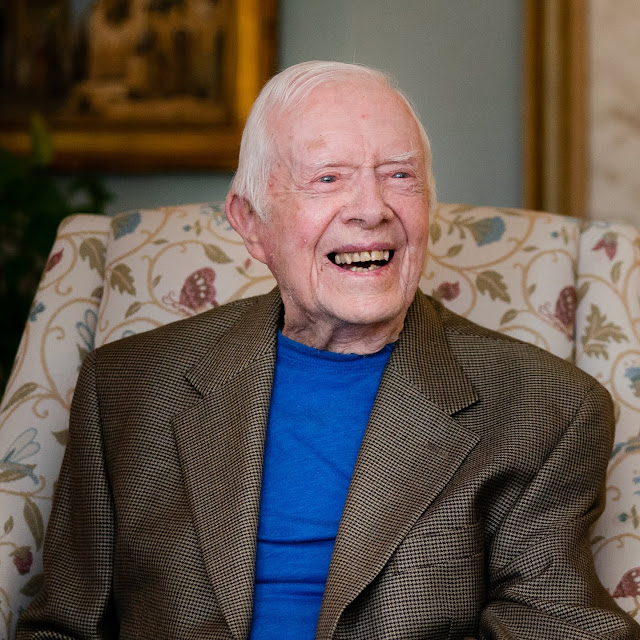Jimmy Carter, 98, Opts for Hospice Care
The 39th president has decided to forgo further medical treatment and will “spend his remaining time at home with his family,” the Carter Center announced.
Democrat who after a single term as governor of Georgia shocked the political world by beating a host of better-known rivals to capture his party’s presidential nomination in 1976, then ousting the incumbent Republican president, Gerald R. Ford, in the fall.
Over the course of four years in office, he sought to restore trust in government following the Vietnam War and the Watergate scandal, ushering in reforms that were meant to transform politics. He negotiated the landmark Camp David accords making peace between Israel and Egypt, an agreement that remains the foundation of Middle East relations.
But a sour economy and a 444-day hostage crisis in Iran in which 52 American diplomats were held captive undercut his public support, and he lost his bid for re-election to former Gov. Ronald Reagan of California in 1980.
He spent his post-presidency, however, on a series of philanthropic causes around the world, like building houses for the poor, combating Guinea worm, promoting human rights in places of repression, monitoring elections and seeking to end conflicts. His work as a former president in many ways came to eclipse his time in the White House, eventually earning him the Nobel Peace Prize and rehabilitating his image in the eyes of many Americans.

